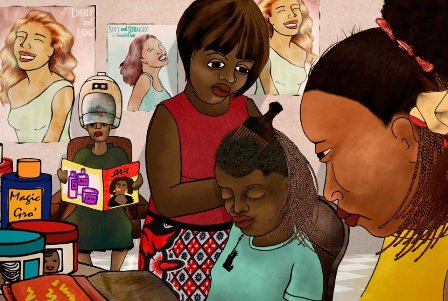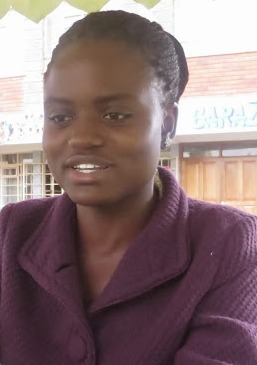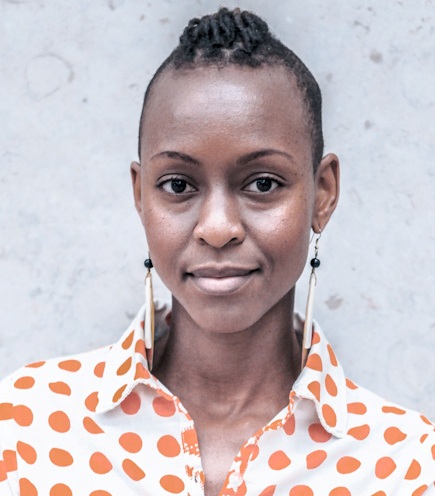By Japheth Ogila with Ogova Ondego
Published July 5, 2014
 When you walk in the streets of our African cities–be it Kenya’s Nairobi, South Africa’s Johannesburg, Ghana’s Accra or even Kinshasa of the Congo–your eyes are likely to spot a woman whose face appears lighter than the rest of her body, and especially the skin around the eyes, elbows or fingers. You are likely to be puzzled by what appears like her ‘over-reliance’ on the umbrella to shield her skin from sunlight.
When you walk in the streets of our African cities–be it Kenya’s Nairobi, South Africa’s Johannesburg, Ghana’s Accra or even Kinshasa of the Congo–your eyes are likely to spot a woman whose face appears lighter than the rest of her body, and especially the skin around the eyes, elbows or fingers. You are likely to be puzzled by what appears like her ‘over-reliance’ on the umbrella to shield her skin from sunlight.
And no; the woman isn’t suffering from any skin ailment. She belongs to the breed that has taken to skin-bleaching on the belief that it not only makes them more beautiful but also gives them an edge over their dark-skinned counterparts.
RELATED: Embrace the Woman in You
 A woman called Vera Sidika set the tongues of Kenyans wagging in June 2014 when she claimed in the media that she had used a whopping Sh15 Million (about US$170, 000 ) to bleach her skin in order to ‘make it’ as a ‘socialite’. Kenyans not only wondered where she had got such a large amount of money but also how a supposedly university-educated woman could have degraded herself by trying to turn herself into a European using skin-bleaching chemicals.
A woman called Vera Sidika set the tongues of Kenyans wagging in June 2014 when she claimed in the media that she had used a whopping Sh15 Million (about US$170, 000 ) to bleach her skin in order to ‘make it’ as a ‘socialite’. Kenyans not only wondered where she had got such a large amount of money but also how a supposedly university-educated woman could have degraded herself by trying to turn herself into a European using skin-bleaching chemicals.
The mass media quoted Orie Rogo Manduli, a political activist and former model, calling Sidika names: “I think this Vera Sidika woman is very stupid. She is an embarrassment to women. By bleaching herself, it’s obvious that she is ashamed to be black. Why can;t she just emigrate and live with the people whose skin-colour she considers ideal?”
What drives African women into bleaching their skins?
RELATED: Kenyan Women Face Dilemma over Their Body Looks
 Africa Science Heroes, a journal of Malawi Science Centre Project, says that women bleach their skins on the belief that “fairer skin tone symbolises beauty and wealth”.
Africa Science Heroes, a journal of Malawi Science Centre Project, says that women bleach their skins on the belief that “fairer skin tone symbolises beauty and wealth”.
It is inferiority complex that tempts Africans into trying to turn themselves into black Europeans, says Kenyan academic George Kinoti.
Prof Kinoti, a former Chair of the Zoology Department at University of Nairobi, writes in Hope for Africa and What the Christian Can Do that such Africans with low self esteem associate success with the white man’s culture and copy everything about it; from names, hair structure and go on to lighten their skins to look like Europeans.
Fred Mbogo of Moi University attributes this to the effects of popular culture as propagated through glossy magazines, television programmes and films that portray the successful as being light-skinned.
RELATED: Tourism a vehicle for Gender Equity and women’s empowerment
 Saying “Success and light skin are inseparably yoked together”, Dr Mbogo, a Lecturer in the Department of Literature, Theatre and Film Studies, writes in an article titled University Eyes Feast on Partially Opened Books and Boobs on ArtMatters.Info: “When young impressionable girls watch ‘youth’ programmes on television in which popular musicians are the main focus, they see a Beyonce, a Rihanna, a Shakira or a Jennifer Lopez whose light complexion is replayed as the tickets to their success.”
Saying “Success and light skin are inseparably yoked together”, Dr Mbogo, a Lecturer in the Department of Literature, Theatre and Film Studies, writes in an article titled University Eyes Feast on Partially Opened Books and Boobs on ArtMatters.Info: “When young impressionable girls watch ‘youth’ programmes on television in which popular musicians are the main focus, they see a Beyonce, a Rihanna, a Shakira or a Jennifer Lopez whose light complexion is replayed as the tickets to their success.”
Consequently, Mbogo adds, such women “buy into this idea and cannot stop themselves from shopping for skin-lightening creams and chemicals.”
The power of the pop culture that Fred Mbogo mentions is illustrated by YELLOW FEVER, an experimental film by Kenyan Ng’endo Mukii. Fusing documentary, animation and fictional styles, the seven-minute film tackles the issue of skin-lightening creams among African women.
RELATED: The Folly of Prematurely Rushing Into Marriage
 Writer Daisy Nandeche Okoti refers to skin-lightening as an elephant “that has slowly but surely taken a seat among African women.”
Writer Daisy Nandeche Okoti refers to skin-lightening as an elephant “that has slowly but surely taken a seat among African women.”
Reviewing YELLOW FEVER for ArtMatters.Info in an article titled Yellow Fever Grips Africa, Okoti writes: “The association of white-skinned people with superiority and ‘true beauty’ as demonstrated in this film is an issue that should be examined closely in the walk towards making black women accept themselves and appreciate who they are without any apology.”
RELATED: UN Creates New Body to Empower Women Globally
Dr Mbogo wonders how the inferiority complex and low self esteem that Prof Kinoti mentions can affect university-educated women who should have been liberated by their higher learning.
 “Is the power of myth as circulated through television and glossy magazines greater than the learning inspired by world re-known researchers in these universities?” Mbogo poses. “Or is the system of education so dignity-lowering that it makes one seek a better, higher self through desperate means?”
“Is the power of myth as circulated through television and glossy magazines greater than the learning inspired by world re-known researchers in these universities?” Mbogo poses. “Or is the system of education so dignity-lowering that it makes one seek a better, higher self through desperate means?”
A possible solution to freeing the likes of Vera Sidika from their misguided conception of beauty and success, Mbogo says, would be for universities to teach courses that he calls ‘Bob Marley-inspired’ to ‘liberate Africans; from ‘mental slavery’. Moreover, he further states that beautiful black skin can be achieved through natural ways rather than women opting for skin lightening creams.
This appears to be in line with the view of Malcolm X, an anti-racism crusader in USA who observed in 1965 that though black people in America were acquiring education in institutions of higher learning, their minds were still ‘colonised’, making them ashamed of what they are; that their cultures had been destroyed. That they hated their skins, the texture of their hair and their God-given African features.
Though skin lighteners have been linked to detrimental health problems in which the victims suffer from ailments such as irritation and weakening of the skin, infertility, hypertension, obesity, cancer and damage to internal organs, this doesn’t seem to deter the Vera Sidikas of Africa from their quest for bleached ‘beauty’ and ‘success’.
RELATED: Kenya’s Anti-Female Circumcision Law Clashes with Widespread Culture



